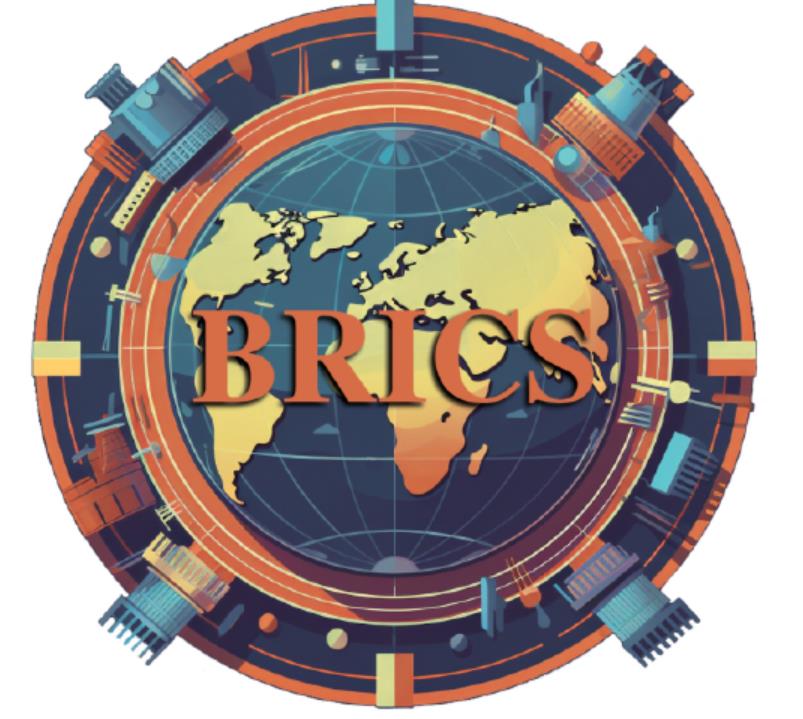金砖国对新的世界秩序的见解 - 2023-09-10

With the world entering a post-COVID environment, each country is struggling to deal with severe economic challenges. Alongside these are the possibility, if not probability, of enhanced friction between nations due to insecure regional and global environments.
It is evident that there are disruptions to the global order, accentuated by the ongoing Ukraine crisis, that are mainly led by the unipolar dominance of the United States.
In this reshaping of the global matrix, each state interacts with other states and with regional institutions in a different way, which we can call the "dynamics of relations of the new era". A significant feature of this has been the pull of the US toward inward protectionism, even before the pandemic, while countries such as India and China call for greater globalization.
It is here that multiple bilateral as well as regional multilateral engagements such as the Shanghai Cooperation Organization and the Association of Southeast Asian Nations have gained prominence. BRICS, the grouping of the major emerging economies of Brazil, Russia, India, China and South Africa, is also one of these, having evolved into be an institutional structure safeguarding the economic security of its members and regional stability.
Since the 2008 global financial crisis, there have been concerns over the sustainability of the dollar-dominated monetary system. In subsequent meetings, BRICS emphasized a greater push for reform of existing financial institutions to reduce the dominance of the US dollar, established the New Development Bank in 2014, the Contingency Reserve Arrangement, the BRICS payment system, the BRICS Joint Statistical Publication and the BRICS basket reserve currency. The 2019 Brasilia Summit Declaration reinforced this vision with the strengthening and reform of the multilateral system as the main element of cooperation.
In the post-COVID scenario, the objective of "shared prosperity" has come to the fore as economies face the severe challenges of slow growth, distortion of supply chains and lack of strong financial support. Development and economic security inevitably were the priorities at the 15th BRICS Summit, held in Johannesburg, South Africa, from Aug 22 to 24.
BRICS has further emphasized the importance of multilateral development banks, which will be conducive to ensure lending capabilities while maintaining financial stability, preferred creditor status and resilient creditor ratings. When addressing the 15th BRICS Summit, President Xi Jinping said the world economic recovery remains shaky, and challenges for developing countries are even more formidable, hampering their efforts to realize the United Nations' Sustainable Development Goals.
During the summit, Argentina, Egypt, Ethiopia, Iran, Saudi Arabia and the United Arab Emirates were invited to join BRICS. When they formally become members on Jan 1, the enlarged BRICS will account for 37 percent of the world's GDP in terms of purchasing power and 46 percent of global population.
Indian Prime Minister Narendra Modi said during the BRICS Summit that "the expansion and modernization of BRICS is a message that all institutions in the world need to mold themselves according to the changing times".
The expansion of BRICS is not only conducive for collective decision-making to support the economic vulnerabilities of states, but also provides a platform for joint understanding in dealing with regional security issues.
Even though BRICS has not been able in recent years to transform either the global order or global financial institutions, the way ahead is filled with hope, as the past few years have shown productive cooperation in areas such as finance, trade, science and technology, health and agriculture. The momentum of cooperation within BRICS consolidates the momentum for a geopolitical discourse on the future of the global order.
The Saudi Arabia-Iran peace negotiations at the behest of China, and the two countries' expressed interest in joining BRICS, have shown a new path for cooperation among states — one that discounts the perceptions of threat and conflict.
BRICS, therefore, offers the vision of a new world order that looks toward creating peace and forging new alliances for development.
The author is Geeta Kochhar, an assistant professor of Chinese at Jawaharlal Nehru University in India.
Source: China Daily
